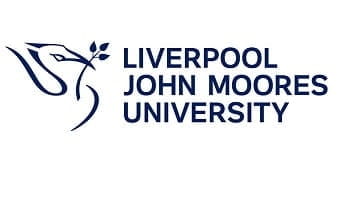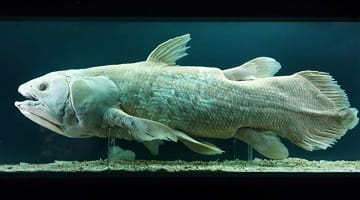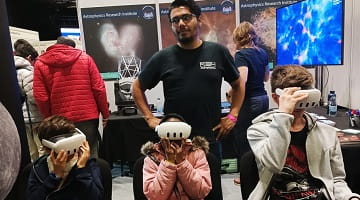Course modules
What you will study on this degree
Further guidance on modules
Modules are designated core or optional in accordance with professional body requirements, as applicable, and LJMU’s Academic Framework Regulations. Whilst you are required to study core modules, optional modules provide you with an element of choice. Their availability may vary and will be subject to meeting minimum student numbers.
Where changes to modules are necessary these will be communicated as appropriate.
Core modules
Engineering Mathematics
15 credits
15 credits
Engineering Mechanics
15 credits
15 credits
Principles of Electrical and Electronic Engineering
15 credits
15 credits
Engineering Drawing and Computer Aided Engineering
15 credits
15 credits
Engineering Materials and Manufacturing Processes
15 credits
15 credits
Instrumentation and Control Systems
15 credits
15 credits
Thermodynamics
15 credits
15 credits
Energy Science and Applications
15 credits
15 credits
Engineering Mathematics 1
10 credits
10 credits
This module develops your knowledge and understanding of the mathematics underpinning engineering. It develops your ability to apply these techniques within an engineering context. Laboratory sessions enable you to use and apply mathematical software to the solution of engineering mathematics problems.
Engineering Mechanics
20 credits
20 credits
This module encompasses the scientific principles behind Engineering Statics and Dynamics, along with introductory approaches and techniques to determine the behavioural characteristics of engineering components relevant to machines.
Engineering Drawing and Computer Aided Design
20 credits
20 credits
This module aims to develop your knowledge and understanding of the Engineering Drawing and Computer Aided Designing, and helps you to apply these techniques within an engineering context.
Principles of Electrical and Electronics
20 credits
20 credits
This module aims to develop your knowledge and understanding of the electrical and electronics fundamentals for Mechanical Engineering.
Engineering Materials and Manufacturing Processes
20 credits
20 credits
This module encapsulates topics relevant to common materials used in engineering application, the relevant material properties, the methods of testing these properties, summing to the selection of materials whilst considering the material failure modes. Additionally, this module will also explore manufacturing processes that are commonly conducted to meet various production demands, as well as discuss about the characteristic and machinery linked with these processes.
Thermodynamics
20 credits
20 credits
This module covers the fundamental laws of Thermodynamics in both a theoretical and practical outlook linked to engineering processes. With the emphasis on thermo-fluids, this module will also explore the utilization of thermodynamic principles for substances like Steam and industrial processes like Combined Heat and Power systems.
Engineering Economics
10 credits
10 credits
This module introduce and develop a comprehensive understanding the principles of economic evaluation of decision alternatives in engineering applications.
Core modules
Analytical Mathematics
15 credits
15 credits
Design Project
15 credits
15 credits
Engineering Economics
15 credits
15 credits
Machine Design II
15 credits
15 credits
Fluid Mechanics and Hydraulics
15 credits
15 credits
Heat Transfer and Combustion
15 credits
15 credits
Mechatronic Systems and Robotics
15 credits
15 credits
Machine Design I
15 credits
15 credits
Engineering Mathematics 2
10 credits
10 credits
The module is designed to extend the student's expertise in engineering mathematics to analyse the scientific and engineering problems. Specially, statistics, numerical methods matrix methods and series are studied.
Engineering Design Project
20 credits
20 credits
The module is designed to bring multi-disciplinary team to work together to allow students to gain the knowledge of multi-disciplinary skills of engineering. Therefore, the learners will be able to coordinate with individuals sharing knowledge and with strong team working skills. The students will work as a group with a minimum of three and a maximum of five.
Machine Design
20 credits
20 credits
The module introduces the engineering design process with concepts not limited to production drawings, tolerancing, Computer Numerical Control (CNC) and Ergonomics. Furthermore, the module delves into the design and analysis of popular machine components, transmission systems and miscellaneous supporting systems like fastening methods, finishing processes and lubrication. Ultimately, this module offers fundamental concepts and offers the opportunity to practically implement Machine Design linked with Mechanical Engineering systems.
Instrumentation and Control Engineering
20 credits
20 credits
This module develops your understanding of components and the principles of control systems, basic design and analysis techniques, and practice some control applications.
Fluid Mechanics and Hydraulics
20 credits
20 credits
The module explores the various fluid properties that influence fluid behaviors, followed by the expansion to preliminary Fluid Statics and Dynamics principles by looking into the governing laws. With a thorough understanding of these concepts, the module also presents opportunities to review practical considerations, and gain an awareness of advanced computational techniques to solve Fluid Mechanics problems relevant to Mechanical Engineering systems.
Heat Transfer and Combustion
10 credits
10 credits
This module provides the foundation for Conductive, Convective and Radiative Heat Transfer, expanding on to scientific and experimental concepts linked to each mode of heat transfer whilst exploring their application in various configurations with special emphasis on Heat Exchangers. Additionally, this module also extends to develop the learners’ understanding of combustion chemistry with regards to specific concepts and practical considerations relevant for Mechanical Engineering systems.
Mechatronic Systems and Robotics
20 credits
20 credits
This module aims to develop understanding of concepts in mechatronics and robotics. It introduces the student to basic programming as well as problem solving strategies. This course will involve students in the development, building and programming of a basic robot.
Fees and funding
Entry requirements
Please choose your qualifications below to view requirements
Grades/points required from qualifications:
Work out how many UCAS points your qualifications are worth using the UCAS Tariff Calculator.
Qualification requirements
Alternative qualifications considered
English language proficiency Grade C or above in GCSE Ordinary Level.
OR
IELTS 6.0 overall with no component below 5.5, taken within two years of the course start date
OR
ICBT Higher Diploma in English
International requirements
Other international requirements
The HD suite of programmes at ICBT provides an excellent example of widening participation in a country where there is not enough University supply to fill the demand for higher education. Students can enter the HD programmes after studying for 13 years in the formal education sector through either having studied for A levels, or having undertaken the Foundation programme after studying for O levels. Other level 3 qualifications will also be considered for suitability for entry to the programmes. For the engineering programmes, students must have studied maths, biosciences and/or technology whereas for Quantity Surveying, any subjects will suffice. Students have been entering these programmes with these qualifications for many years and have been successful in achieving the qualifications.
How to apply
Securing your place at LJMU
Your university life
From accommodation and academic support to clubs and societies. Find out what LJMU has to offer.
Talk to our students
Connect with a current LJMU student for advice and guidance on university life, courses and more.
See what our students are saying
At LJMU we want you to know you're making the right choice by studying with us. You can see what our students are saying about their experience with us through their reviews on the following websites:
Related Links
News and views
Browse through the latest news and stories from the university










The university reserves the right to withdraw or make alterations to a course and facilities if necessary; this may be because such changes are deemed to be beneficial to students, are minor in nature and unlikely to impact negatively upon students or become necessary due to circumstances beyond the control of the university. Where this does happen, the university operates a policy of consultation, advice and support to all enrolled students affected by the proposed change to their course or module.
Further information on the terms and conditions of any offer made, our admissions policy and the complaints and appeals process.









